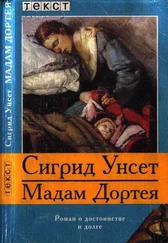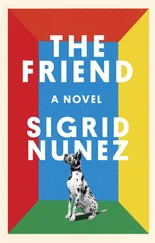“What I’d like you to do for me,” she said, “is to think back to a time when you and your mom and dad were all very happy, and describe that time for me.” The woman’s name was Eden. She was not a comforting sight. She had hooded eyes and deep dark lines running down her cheeks as if she had wept acid. They sat on a bench near a small fountain whose gurgle sounded like birdsong. There was real birdsong, too, and it almost hurt his ears, it was so shrill and excited. The day was cloudy. He had not been outdoors in weeks and he was sharply aware of the light and the air, almost as if he were experiencing them for the first time. Though he was well covered up, he felt naked. The least breeze made him shiver. The smell of the roses was strong, almost sickening, like the perfume of old ladies.
He didn’t want to talk about the happy time, and so he invented something, some story that he then forgot almost immediately. But he would remember later how he’d gone on and on, dragging the fake story out, and how Eden had listened, watching him curiously, not interrupting until he finally stopped talking. Then she made no comment except to thank him for sharing. He had no idea if she knew that he’d lied. But it seemed to him that as she listened her mouth had tensed and something like dislike had crept into her face.
COUGH, COUGH, COUGH, COUGH, COUGH.
It followed you everywhere, like footsteps. But then came worse.
It was as if behind the bedroom door Cole’s father had split into several different people who could be heard at different times chattering, arguing, laughing, and once even singing with one another. Cole listened, his blood running cold.
“Get out, get out, you spider cunt! I’ll kill you, Serena!”
Cole nearly collided with his mother as they both ran out into the hall. There was no color in her face. “Dad doesn’t know what he’s saying.” But he kept saying it, over and over.
Once, he found her slumped on the landing with her legs tucked under her and her hands over her ears. Behind the door his father was calling, “Mom! Mom!”
Fever dream, his mother explained. “He’s back in his childhood.”
Yes. But why did he sound so scared?
Middle of the night. Cole woke to hear his parents talking. To his surprise, the noise (why were they being so loud?) came not from their room down the hall but from downstairs.
So his father’s fever must have broken. He was probably in the kitchen, getting something to eat. He’d be starving, of course; he’d eaten hardly anything this past week. Cole wanted to see him! He wanted to go down and join his parents—but not if they were fighting. Wait—how could they already be fighting? And where did his father get the strength to raise his voice? Had his mother picked now of all times to announce that she was leaving? This, Cole could not believe. The only explanation was that Cole was still asleep; he was dreaming . . .
Morning. He found his mother in the kitchen, alone. She was sitting at the table, her laptop open in front of her. Instead of her bathrobe she was wearing her winter coat. His father wasn’t there. He wasn’t upstairs in bed, either. The door to his room had been wide open when Cole passed on his way down.
Before he could form the question, his mother spoke. “I’m sorry,” was all she said.
Cole’s head started jerking helplessly from side to side, as if someone were taking swings at him. The pounding in his ears was so fierce it felt like a sudden loss of hearing.
“But I heard him last night—”
“Don’t shout,” she whispered. She stood up and embraced him. They staggered together, gripping each other for support, a macabre little waltz. She let go of him then and coaxed him down onto a chair, saying, “Sit, sit, sit.” They were both crying.
She went to the fridge and took out a bottle of water. She took a glass from the cupboard and filled it with water and carried it to the table and set it in front of him. Every movement careful and slow, as if even the least gave her pain.
Cole stared at the water as if he had no idea what it was.
She gripped the edge of the table with both hands. “I have to lie down before I pass out.” Her voice was a croak; her eyes looked as if someone had tried to scratch them out. “I’ve been up all night.”
He wanted to help her. He picked up the glass and tried to give it to her but she waved it away.
She didn’t want to climb the stairs. Without taking off her coat she stretched out on the living room couch, resting her heels on one of the arms so that her feet were higher than her head. Cole knelt on the floor beside her. He sucked in his lips to stop them from trembling.
It wasn’t his father he’d heard, she said. His father had been unconscious.
“He needed to get to a hospital, but I knew I’d never get an ambulance to come here.” She had run out into the street and started knocking on doors. Two houses down lived a retired widower—the owner of the chocolate Lab that sometimes roamed the neighborhood—who’d agreed to come back with her.
“I wanted him to help me carry Dad to the car. He tried talking me out of it. He said the hospital wouldn’t be able to do anything. But I wouldn’t listen. I hung on to his arm, I begged him until he gave in.”
“Why didn’t you wake me , Mom?”
“Oh, sweetie, I don’t know.” She looked at him imploringly. “I wasn’t sure, I didn’t think it would help if you—yes, maybe I should have woken you. Can you understand why I didn’t think so at the time?”
Cole nodded, but inside he was screaming. He remembered waking up to the noise and how he’d decided against going downstairs. Mistake! Mistake!
The man wouldn’t go with her to the hospital, she said. Suddenly she began to sob. “Why did we come here? We never should have come!” She sat up and gazed around the room with a look of terror. “We never should have come!” She was sobbing so hard Cole could barely make out the words.
He said nothing. He felt utterly helpless, under a spell, without the power even to put his arms around her. How would they live? How would they live without his father?
His mother had let herself fall back. She was still sobbing, but quietly, and Cole let her be. Minutes passed—he had no idea how many—and he saw her fall asleep, or pass out. A river of fear ran through him. He didn’t want to be alone.
“Mom!”
Her eyes flew open. For an instant she looked blind.
“I’m sorry,” she said. “I can’t stay awake anymore.”
Cole thought again of that old movie, the one where falling asleep meant worse than death. The one whose hero had the same name as his father.
“Let me sleep just a little,” she slurred, eyes closing again.
He was alone.
He got up and drifted back into the kitchen. He took a sip of water from the glass sitting on the table and poured the rest down the sink. How clean the kitchen was, all neat and shiny. The whole house was like that. It was one of his mother’s ways of dealing with stress. If my hands are busy I’m not wringing them, she said. At other times, the house was a mess.
He sat down at her laptop and tapped the touchpad.
Addy, the worst has happened. Miles had a heart attack and died last night. I’ve been trying to call you but can never get through. I’m writing now mostly just for something to do until Cole wakes up. I don’t know how I’m going to tell him. I swore to him Miles was going to get over the flu, and technically he didn’t die of the flu, though I was told the attack was probably triggered by inflammation caused by the virus. I had to ask a stranger to help me get Miles to the hospital. He kept telling me it wouldn’t do any good and I knew he was right, but if Miles was past saving I was determined at least to get his body out of the house. I didn’t want to be like all those poor people forced to live with their dead or secretly dump them somewhere. What will happen to his body now I don’t know, I suppose it will be burned, or buried in some mass grave. My god, I can’t believe I just wrote that. I feel like a big part of me still hasn’t taken it in.
Читать дальше














